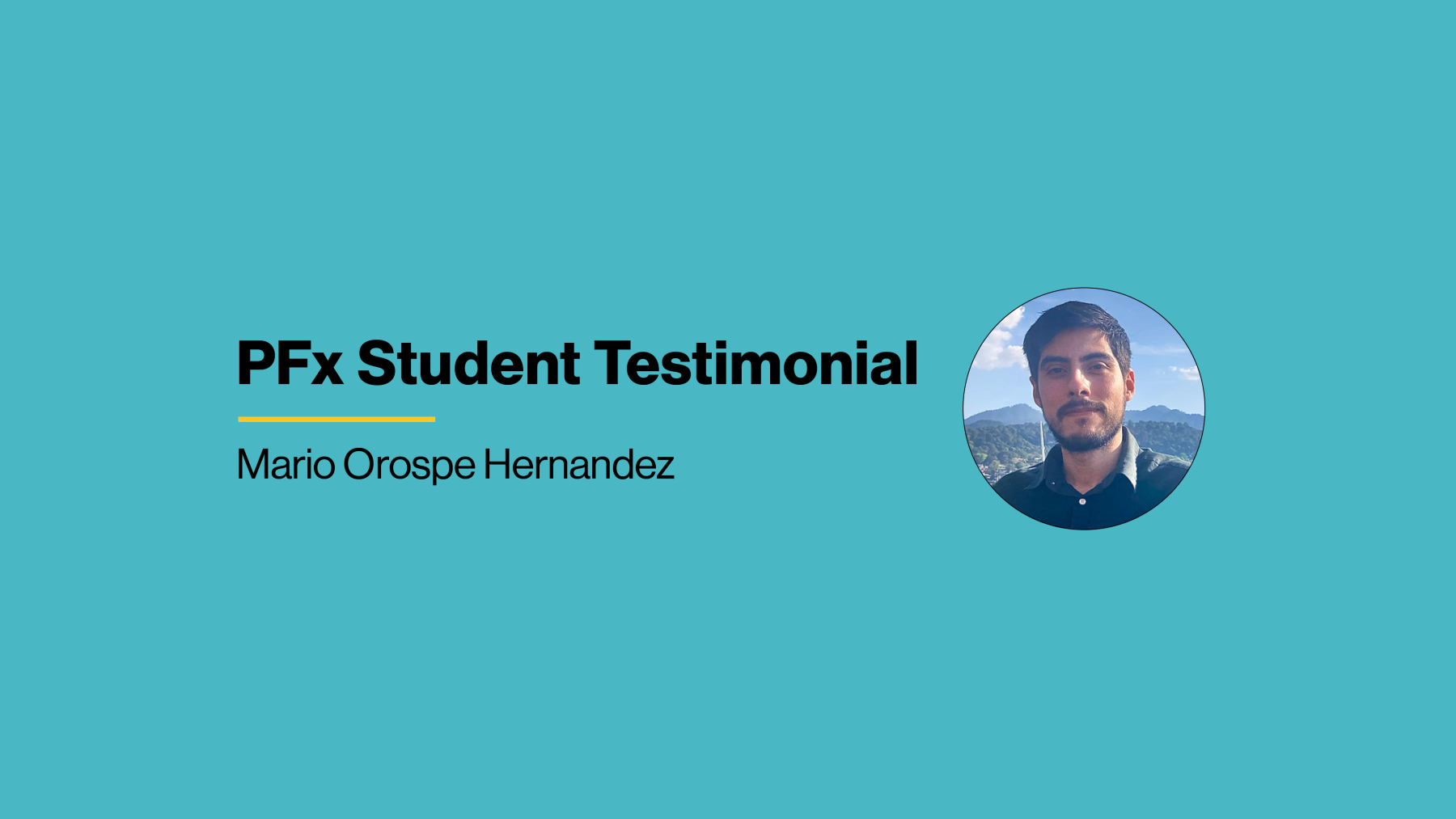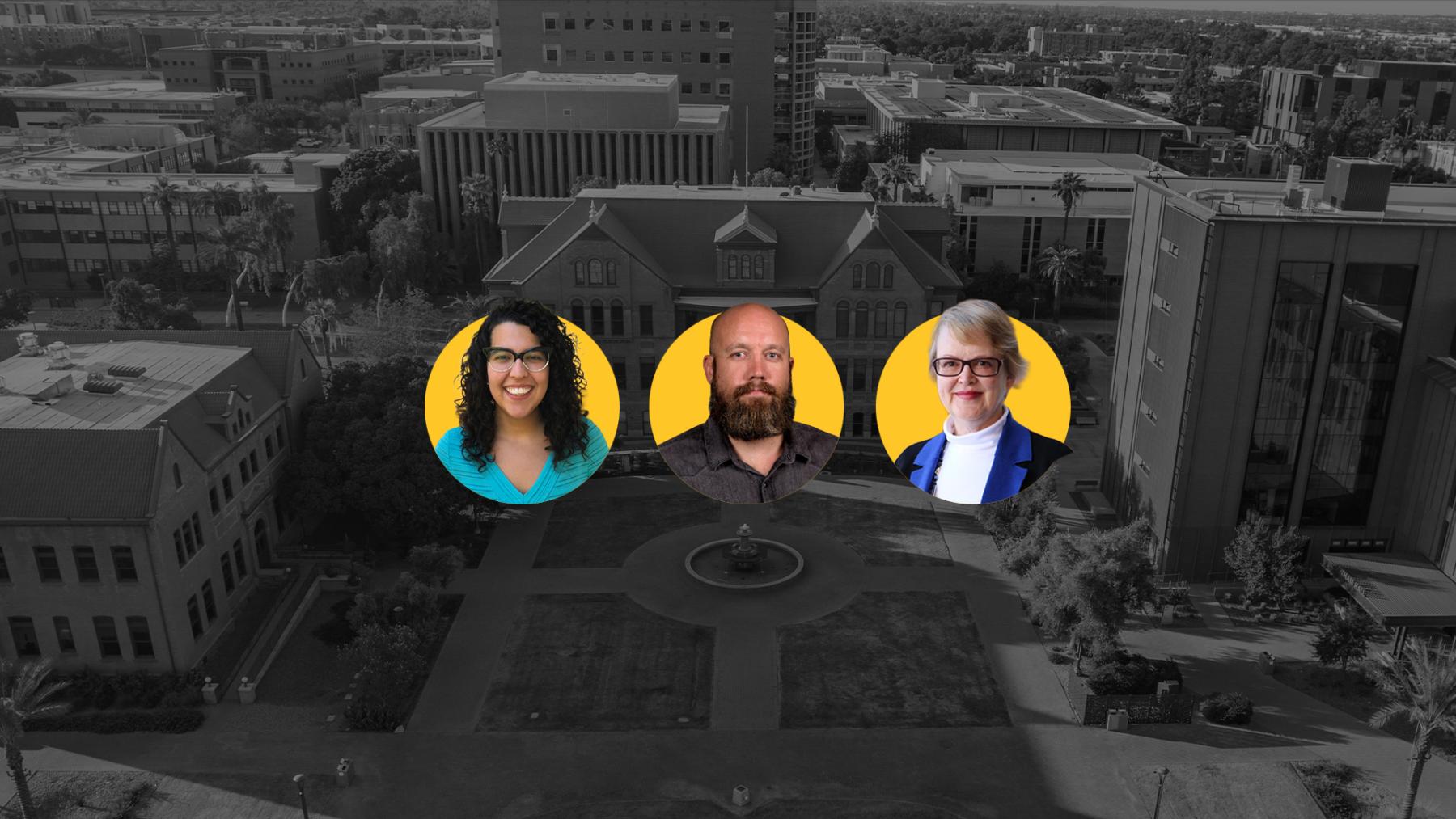
Humanities scholar explores the intersections of religion, capitalism and tech
Name: Mario Orospe Hernandez
Please introduce yourself, where are you from?
I am an international graduate student from Mexico City. Here at ASU, I'm studying to become a transdisciplinary humanities scholar exploring the intersection of religion, capitalism and technology.
Where did you go to school before ASU? What was your major and minor?
Before joining this PhD program at ASU, I studied at the National Autonomous University of Mexico (UNAM), the largest public university in my home country. I earned a bachelor's degree in Arts and Political Science there and later a master’s degree in philosophy. After graduating from college, I worked as a public policy analyst for a few years. Although I enjoyed working in this field, I always wanted to study philosophy, so some years later, I returned to school to pursue that goal.
In my master’s program, I specialized in political philosophy and ethics. I was mentored by Dr. Enrique Dussel, one of the founders of Liberation Theology and Dr. Silvana Rabinovich, a Jewish philosopher. After my graduation, I worked as a humanities teacher at “Tecnologico de Monterrey,” teaching philosophy, ethics and theory of knowledge (initially in a high school and later to undergraduate students). Luckily, I found a way to combine this academic position with a political science job since I worked a simultaneously a political discourse advisor from Mexico City’s director of the ministry of transportation.
What’s something you learned during your professional or academic journey that surprised you or changed your perspective?
I did not study philosophy initially because of certain social prejudices in my home country on selecting a major that promises a job. During my professional and academic journey, I have learned that in today’s world, your major doesn't guarantee your professional success in itself. It is better to set aside social pressures about the fear of finding a job and go for what you love studying and what makes you happy. When you are passionate about what you do and engage with it in a disciplined way, you will eventually become one of the best at it. Then you will be able to find professional opportunities in which you can excel or even create new opportunities for yourself. Yet, I am grateful for having studied political science first because I have learned that it is possible to combine academic positions with other professional activities where you can positively impact the community in practical ways.
What types of problems do you work on? Why do you think they are important?
My dissertation research investigates the economic effects of secularism, namely, the alleged separation of religion from public life. In particular, it explores how this ongoing historical process impacts two poles of the smartphone commodity chain: Silicon Valley, where this device's software is programmed and Uyuni, Bolivia, where an essential mineral for the flow of its circuits gets extracted. Coming from a discipline like philosophy, where debates tend to be more abstract and universal, I enjoy engaging in discussions on a more grounded level under the scope of the anthropology of religion.
Hence, on one hand, this analysis aims to understand how tensions around the religious and the secular have informed the emergence of present economic categories such as "raw materials" or "data." On the other hand, it interacts with workers at each pole of the commodity chain like the new product developers and lithium miners, to observe the current effects of secularity in the everyday life work routines of these communities, especially considering their rituals at their workplaces. Thinking about problems like these is relevant because they allow us to understand that the boundaries between religion and economy are blurrier than we tend to think and that what we consider valuable is often an outcome of complex historical and ongoing struggles.
Why do you think these problems exist?
Despite all the technical advances and individual liberties that modernity brought, it is undeniable that the modern world has been historically grounded in colonialism and other forms of exclusion, like racism. These violent experiences created enduring hierarchies among diverse forms of knowledge and archaic ways of being.
Consequently, the current configuration of our global economic order reflects these legacies as regimes of value that focus on the exchange of commodities and that is considered universally rational and factual. In contrast, for example: people valuing mountains, plants, or animals as “sacred” beings, are reduced to mere “beliefs” or dangerous “superstitions” to be eradicated.
What are some of your long-term professional goals?
In the long run, my priority is for my scholarly work to be more impactful to a wider audience outside of the academic community. My goal is to obtain a research-intensive faculty position and at the same time, collaborate in advocacy groups or advise politicians and decision-makers. I hope that my work can benefit our society directly.
Please tell us about your experience with PFx!
I enjoyed participating in the Preparing Future Scholars seminar, since I received first-hand advice and mentoring from successful scholars from an array of disciplines and academic backgrounds. Above all, it helped me envision where I want to direct my academic and professional career.
It might sound silly, but no one had ever explained basic things like the types of academic institutions in the U.S., the difference between a curriculum vitae and a resumé, the different stages while applying to an academic job or the format of an offer letter. So, all of those discussions were vital things I learned from this seminar!
Follow Mario: Instagram: @marioorospe, LinkedIn: mario-orospe-hernandez
More stories from the Graduate Insider

Graduate education is an adventure
About eighteen months ago, I set out on a journey walking the islands of the Dodecanese during a sailing trip in Türkiye and Greece with several friends. Along the way, I found winding paths, timeless villages and breathtaking views of sea and sky. That experience got me thinking about how adventure shows up in other parts of life, especially in learning.

From practice to presentation: How to deliver a winning faculty job talk
Giving a job talk can feel like the most high-stakes presentation of your academic job search. It’s not just a research seminar—it’s your opportunity to demonstrate vision, communication skills, and fit within a department. In a recent Lunch and Learn, faculty members Associate Professor in School of International Letters and Cultures, Anita Huizar-Hernandez, Professor in School of Life Sciences Jeffrey Jensen, and Professor in Department of Physics Patricia Rankin shared concrete strategies to help graduate students and postdocs succeed as future faculty candidates.

Mentoring matters: Mentoring students through impostor syndrome
Graduate education can be an exhilarating journey — but for many students, it also brings moments of self-doubt and uncertainty. In our recent Mentoring Matters panel, “Mentoring Students Through Impostor Syndrome,” Graduate College Senior Associate Dean Dr. Lisa Anderson sat down with Dr. Rebecca Wachs, Associate Professor in the School of Biological and Health Systems Engineering, and Dr.